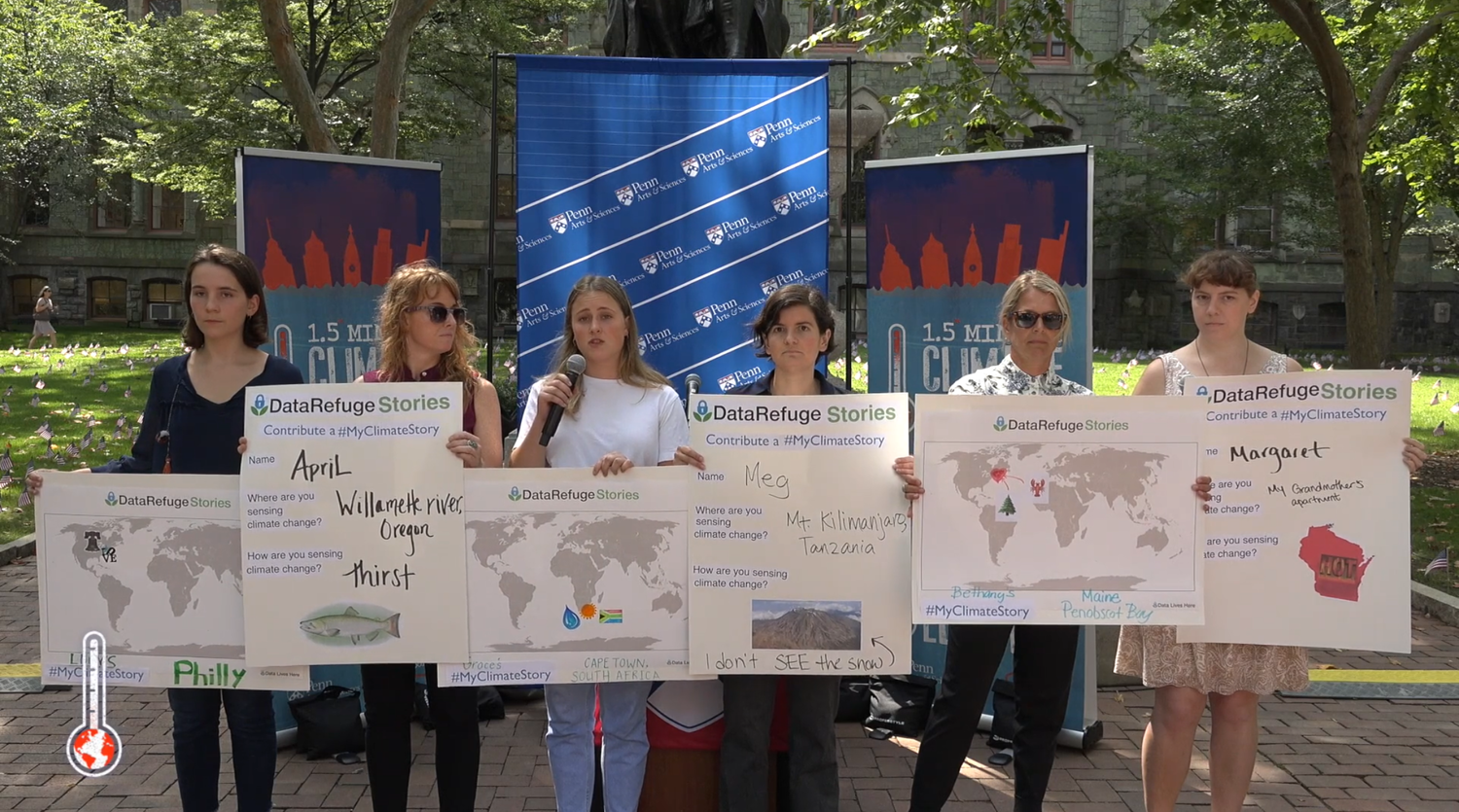We're Sensing Climate Change
September 30, 2019
This is a cross post from our Data Storytelling Project's Data Remediations Blog,
written by Bethany Wiggin, with Grace Boroughs and Katie Collier. You can listen to the accompanying podcast episode here.
What kind of data might we need to promote action on climate? What kinds of data are “actionable”?
These are the questions we, the Data Storytelling team of faculty and student interns at Penn, have been wrestling with while we, and probably you too, watch climate trends worsen. Earlier this month, in conjunction with the UN’s Climate Action Summit, the IPCC released its Special Report on the Oceans and Cryosphere in a Changing Climate. The environmental and climate data gathered in this report—like the data presented a year earlier, in the September 2018 Special Report on Global Warming of 1.5 Degrees—have been collected over decades. The data are robust; they show continuing terrible trends: more CO2 in the atmosphere and in the ocean. We’re cooking the planet, and we who listen to the overwhelming majority of scientists have known it for decades now.
We have the data, but we’re failing to act in ways large enough to slow, stem, and reverse the terrible trends.
When we hear the words “climate data,” we see biq quant, measurements collected by sophisticated sensing instruments and read and then interpreted by scientists in the field and lab. But maybe there are other measurements that can help spur action. Maybe we need more kinds of climate data. Maybe we need data that connects climate change to people and places we care about.
This month—inspired by #UniteBehindTheScience, by #FridaysForFuture, by the local organizers and attendees of climate strikes and marches, by the Climate Action Summit, and by the diverse youth activists who insist we must #ActOnClimate—we began a public data storytelling campaign. It challenges the idea that you need a lab coat to collect climate data. Your field site can be your own backyard. Individual, lived experiences of climate change provide valuable companions to the quantifiable science as we continue to struggle to comprehend and to take action on the climate crisis. We’re calling our campaign, #MyClimateStory, and we want to hear yours.

We introduced the #MyClimateStory initiative on campus at the University of Pennsylvania, as part of the 1.5* Minute Climate Mini-Lectures. Six data storytellers contributed their personal stories and we all talked about how “We’re Sensing Climate Change” in places we love. You can listen to those stories here. And we want you to hear your climate story too! You can contribute it—with text, audio, and video files, as you like, by clicking on the link below. It can be as short or long as you like! Every contribution feeds a growing data storybank, a living archive of climate data filled with local observations of everyday people talking about their favorite places and the changes they’re experiencing.
Our data storytelling team is growing so we can collect diverse stories of lived experiences of climate change (including yours!). The Data Refuge team at UPenn is hiring paid student interns who will work in and around Philadelphia with community partners, and we’re also partnering with other university teams too (stay tuned for their announcement next month!). Our collaborative work will culminate in May with a festival in Philadelphia of Climate Sensing and Data Storytelling that features climate actionable data and stories, including those contributed to the data storybank. Guest artists will be invited to respond to and “remediate” the Storybank; author Amitav Ghosh will be there to share his climate story too. Save the dates: May 7-9, 2020.
